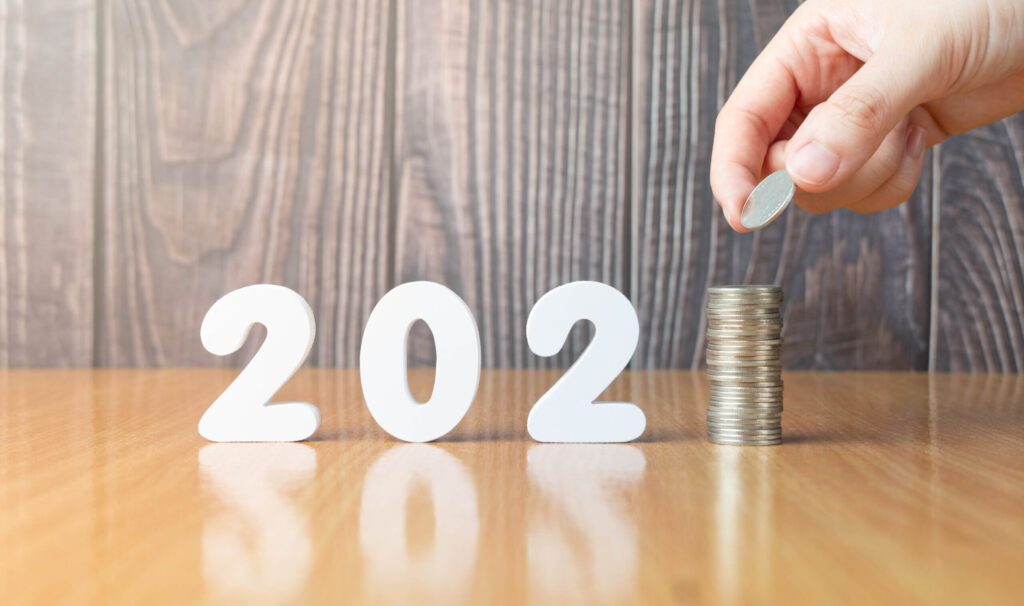By Sarah Wall
It’s January, and like clockwork, one word is suddenly on everyone’s mind: fitness. This time of the year means discounted gym memberships, scales in every shape and color on sale at Target, and tennis shoes replacing Christmas sweaters on department store shelves. But while physical fitness is no doubt important, this is a good time of year to also check in on another measure of “fitness.” As 2021 commences, how are you doing on your financial fitness?
Like physical fitness, there are numerous different objectives you might have in mind to become more financially fit this year, and each one calls for a slightly different “workout” regimen.
1. If your goal is to spend less:
Did you go a little overboard on Christmas shopping this year? (Be honest: Does your spending get a little out of control even when it’s not Christmastime?) If so, there are proven ways to bring your spending down to manageable levels.
First, create a budget. Whether you use an app like Mint or you simply record your costs and income in an Excel spreadsheet, creating a budget is an excellent tool: after all, knowing how much is coming in and being spent is essential to know how much to cut.
If online shopping is a particularly significant area of spending for you, remove your pre-filled credit card information from stores’ websites. Taking the time to fill in your credit card number with each and every purchase will cause you to slow down and ask yourself if the item in your cart is really worth it.
If you tend to spend at in-person venues, develop a habit of paying only in cash. Paying in cash will require a budget you’ve decided on before you see the must-have item. As an added bonus, cash avoids any credit card debt!
2. If your goal is to pay off debt:

From credit cards to student loans, so many Americans have debt these days that debt accumulation has become its own industry: in fact, it’s a $14.27 trillionindustry!
To conquer personal debt, first, stem the flow. This might seem obvious, but for instance, people with credit card debt sometimes continue to spend on credit because of the points and rewards the cards offer. But until the debt is under control, the rewards and points are not worth it. If you have credit card debt, only use debit cards or cash until it’s fully paid off.
When it comes to making payments, most experts recommend paying off your most expensive debt first: in other words, tackle the balance with the highest interest rate, even if the balance itself is lower. That way, the 20% interest rate credit card isn’t continuing to grow while you work on the larger student loan with a 6% rate.
Next, wherever you can, contribute more than the minimum payment on all your debt. Paying the minimum is better than not paying at all, but it will also drag out your debt payoff. If you can, make payments weekly, or make a goal of adding a certain amount each month on top of the minimum payment.
3. If your goal is to save for the future:
Being financially fit is about more than just recovering from previous habits: it’s also about continuing to build on a strong foundation. This year, think about ways you can keep growing. If you already have a savings account, great! Now, open an IRA or a Roth IRA – investing now will maximize savings later because of compounding interest. If you already have a retirement account, fantastic! Now, open an individual account in the stock market. Investment fees have never been lower, and individual participation in the stock market has never been higher. Consider doing some research and purchasing a few shares of a company or fund. You might be pleasantly surprised at how quickly your investment grows. Whatever your goals and resolutions may be for 2021, consider making financial fitness one of them. All of us have ways we can improve our monetary wellness – from paying off debt to saving for the future – and there’s no better time to prioritize our fiscal health than today.

Sarah Wall is a contributing writer for Smart Women Smart Money Magazine. For questions or comments email [email protected].










